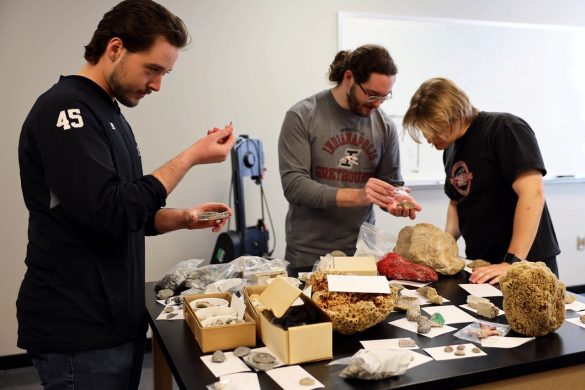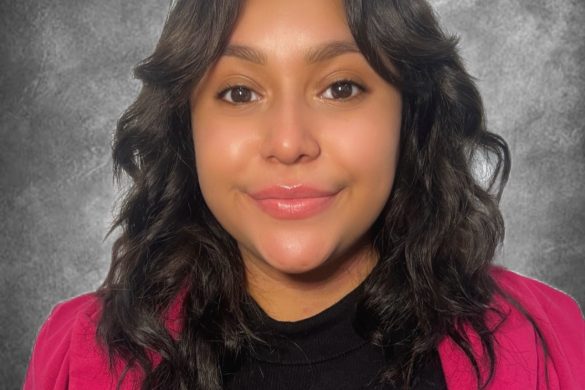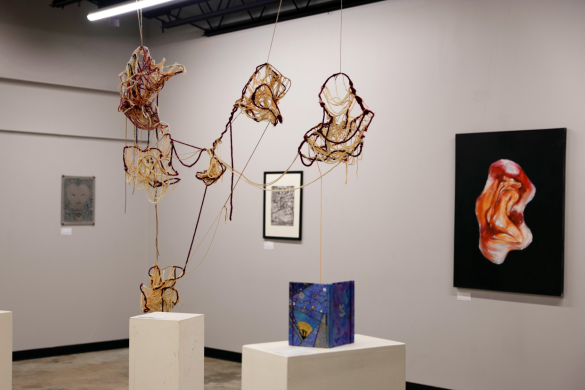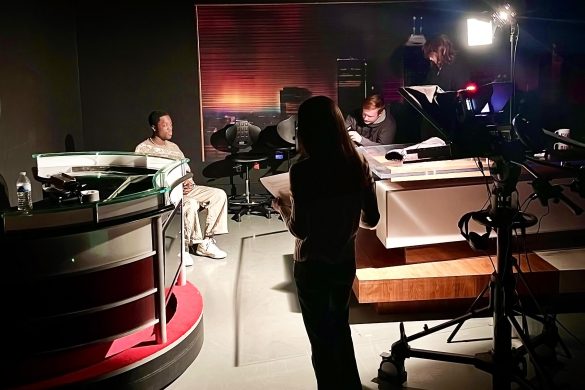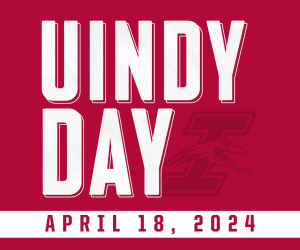Since its establishment in 1902, the University of Indianapolis has had an affiliation with a denomination of Christianity. UIndy was founded as a United Brethren of Christ institution. In 1946, when the Brethren denomination merged with the Evangelical denomination, UIndy became an Evangelical United Brethren school. UIndy has been affiliated with the United Methodist Church since 1968, after the EUB merged with the UMC. According to Director of the Lantz Center for Christian Vocations Jeremiah Gibbs, the university was founded as an extension of the mission of the church, and those same values continue to be a part of UIndy’s mission.
“I think, at the founding . . . this university was an expression of the mission of the church,” he said. “That ethos that we’re about—things like our education for service, for instance, the prominence of our nursing program and our education program—those really are core to what they understood themselves to be about earlier, and it’s still right at the heart of who we are.”
Since the founding of UIndy, religion and the UMC have remained an important element of campus life, the running of the university and the general education curriculum. According to Vice President for University Mission Michael Cartwright, at least six UMC clergy and laity and the bishop of the Indiana UMC conference sit on UIndy’s board of trustees.
However, the relationship and involvement of the UMC on campus has changed since the 1960s, Gibbs said. The UMC stopped providing financial support to the university, with the exception of some scholarships, around 2008 or 2009, according to Gibbs. In addition, while a number of faculty are members, laity or clergy within the UMC, it is no longer something looked at when hiring.
To maintain its affiliation, UIndy is evaluated by a team from the UMC every 10 years, two years after the Higher Learning Commission accreditation visit. The UMC team evaluates the university within the context of that report, Cartwright said, but also looks at the courses offered on Christian topics, such as religion and Christian vocations, the campus ministry program and its partnerships, such as with University Heights UMC for a Taize service and service projects and missions such as the Appalachian Service Project. Those programs that benefit students are why the university continues to be affiliated with the UMC, Cartwright said.
“I think some of it has to do with the desire to make certain kinds of opportunities possible for students who are learning about the world around them. It’s not possible at state universities to have all of the conversations about God that you might want to have,” Cartwright said. “So we make it possible for students to talk about issues of ethics and issues of theology and issues of personal integrity. That doesn’t mean that it’s all about Christianity, but it is the case that being a church-related institution makes it possible for us to offer that kind of hospitality to learn.”
Both Gibbs and Cartwright work to maintain the relationship with the UMC by communicating with representatives, going to the UMC Annual Conference, responding to institutional review materials and filing an annual report each year with the UMC to keep the church updated about programming and changes at the university, according to Gibbs. Cartwright said that he sees himself as a liasion for UIndy and the UMC.
“I think that I help both sides hear one another. I’m an interpreter, a translator,” Cartwright said. “I understand the context within which the church operates. I understand the context in which the university operates. My role as Vice President for University Mission gives me the opportunity to create opportunities for faculty, staff and students to discuss the university’s mission and identity. One of the aspects of that mission and identity is the church affiliation. . . . I’m making it more likely that people understand what the church is about, what the university is about.”
Both Gibbs and Cartwright agree that the affiliation is beneficial to the campus community through programming, collaboration and the university’s support of campus ministry through chaplains and the EIP office.
“We have one of the largest campus ministry staffs of any pluralistic institution,” Gibbs said. “I’m really grateful that the university is supporting religious lives in that way.”


